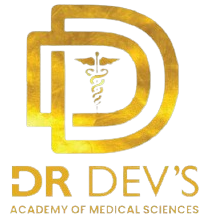Fellowship in Pulmonary Medicine: Nurturing Excellence in Respiratory Care
Introduction: A Fellowship in Pulmonary Medicine is an advanced training program designed for healthcare professionals, particularly pulmonologists and internists, seeking to elevate their expertise in the diagnosis, management, and research of respiratory diseases. This comprehensive fellowship equips practitioners with the skills necessary to address a wide spectrum of pulmonary conditions, from common respiratory ailments to complex lung disorders.
Key Components of the Fellowship:
- Advanced Respiratory Physiology:
- In-depth study of the respiratory system, including lung mechanics, gas exchange, and pulmonary circulation.
- Understanding the physiological basis of respiratory diseases.
- Diagnostic Procedures:
- Proficiency in interpreting pulmonary function tests (PFTs) for assessing lung function.
- Training in bronchoscopy, thoracoscopy, and other advanced diagnostic procedures.
- Imaging in Pulmonary Medicine:
- Interpretation of chest X-rays, CT scans, and other imaging modalities for diagnosing respiratory conditions.
- Recognition of radiological patterns in lung diseases.
- Respiratory Pharmacology:
- Understanding the pharmacological management of common respiratory conditions.
- Mastery of medications used in the treatment of asthma, chronic obstructive pulmonary disease (COPD), and other lung disorders.
- Intensive Care Medicine:
- Managing respiratory failure and critical care aspects of pulmonary diseases.
- Training in mechanical ventilation and hemodynamic support.
- Pulmonary Rehabilitation:
- Implementing comprehensive rehabilitation programs for patients with chronic lung diseases.
- Addressing lifestyle modifications and improving quality of life.
- Sleep Medicine:
- Diagnosis and management of sleep-disordered breathing, including sleep apnea.
- Interpretation of polysomnography and home sleep studies.
- Interstitial Lung Diseases (ILD) and Occupational Lung Diseases:
- Diagnosis and management of ILDs such as idiopathic pulmonary fibrosis.
- Recognition and management of lung diseases related to occupational exposures.
- Pulmonary Research and Publications:
- Engaging in clinical and translational research projects in the field of pulmonary medicine.
- Publishing findings in reputable medical journals to contribute to scientific knowledge.
- Multidisciplinary Collaboration:
- Collaborating with respiratory therapists, chest surgeons, and other healthcare professionals.
- Participating in interdisciplinary forums to enhance patient care.
Assessment and Certification:
- Continuous evaluation through clinical assessments, research projects, and presentations.
- Successful completion leads to the award of a Fellowship in Pulmonary Medicine.
Career Opportunities:
- Graduates can pursue careers as Pulmonologists, Critical Care Specialists, or Respiratory Medicine Consultants.
- Opportunities for academic roles, teaching, and contributing to advancements in pulmonary research.
Conclusion: The Fellowship in Pulmonary Medicine provides healthcare professionals with advanced training to become experts in the comprehensive management of respiratory diseases. By integrating theoretical knowledge with hands-on clinical experience and research, graduates are well-equipped to contribute to the evolving field of pulmonary medicine. This fellowship fosters excellence in patient care, research, and education, preparing practitioners to address the complexities of respiratory health with precision and compassion.
